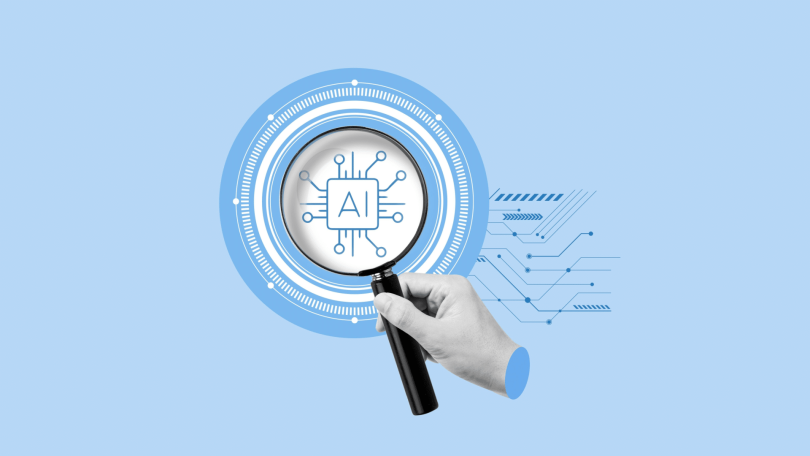Businesses are consistently seeking methods to enhance productivity, reduce costs, and improve overall efficiency. The rise of artificial intelligence (AI) has revolutionized the way organizations approach problem-solving and decision-making. AI optimization plays a pivotal role in modern business strategies, enabling companies to leverage data analytics, automation, and machine learning to streamline operations and achieve their objectives.
Understanding AI Optimization
At its core, AI optimization refers to the use of artificial intelligence technologies to enhance processes, decision-making, and resource allocation within a business. By harnessing vast amounts of data, AI algorithms can identify patterns, predict outcomes, and recommend actions that lead to improved performance across various functions, from supply chain management to customer service. Businesses that effectively integrate AI optimization into their strategies can gain a competitive edge in an increasingly crowded marketplace.
Streamlining Operations with Automation
One of the most significant benefits of AI optimization is its ability to automate repetitive and time-consuming tasks. In many industries, routine processes such as data entry, inventory management, and scheduling can be labor-intensive and prone to human error. By implementing AI-driven automation solutions, companies can significantly reduce the time and resources spent on these tasks. For instance, AI-powered chatbots can handle customer inquiries 24/7, providing instant responses and freeing up human employees to focus on more complex issues.
Moreover, automation powered by AI can lead to greater consistency and accuracy in operations. As businesses automate routine tasks, they can ensure that processes are completed with minimal error rates, leading to improved quality and customer satisfaction. This not only enhances operational efficiency but also helps build a more reliable brand reputation.
Enhancing Decision-Making with Data Analytics
AI optimization also empowers organizations to make data-driven decisions with greater confidence. Traditional business intelligence tools often struggle with the volume and complexity of data generated in today’s digital world. AI algorithms, on the other hand, can sift through vast datasets, extracting valuable insights that inform strategic planning and resource allocation.
For example, in the realm of marketing, AI can analyze customer behavior and preferences, enabling businesses to create highly targeted campaigns. By understanding what resonates with their audience, companies can allocate their marketing budgets more effectively and achieve higher conversion rates. Similarly, in finance, AI can identify trends and anomalies in financial data, helping organizations mitigate risks and make informed investment decisions.
Optimizing Supply Chain Management
Supply chain management is another area where AI optimization has made a profound impact. With the increasing complexity of global supply chains, businesses face numerous challenges, including fluctuating demand, supplier reliability, and logistical constraints. AI technologies can analyze historical data and real-time information to optimize inventory levels, forecast demand, and enhance supplier collaboration.
For instance, AI can predict when certain products will be in high demand and adjust inventory accordingly, reducing the risk of stockouts or overstock situations. Additionally, AI can identify the most efficient shipping routes and logistics options, minimizing transportation costs and ensuring timely deliveries. By harnessing AI in supply chain management, businesses can achieve greater agility and responsiveness, ultimately leading to improved customer satisfaction.
Personalizing Customer Experiences
In an era where customers expect personalized experiences, AI optimization offers businesses the tools to meet and exceed these expectations. By analyzing customer data, AI algorithms can identify individual preferences and behaviors, allowing companies to tailor their products, services, and communications accordingly. This level of personalization can significantly enhance customer engagement and loyalty.
For example, online retailers can leverage AI to recommend products based on a customer’s previous purchases and browsing history. This not only improves the shopping experience but also drives additional sales. Similarly, businesses in the hospitality industry can use AI to customize guest experiences, from personalized room settings to tailored meal recommendations. By prioritizing customer-centric strategies powered by AI optimization, organizations can build deeper relationships with their clients and foster long-term loyalty.
Driving Innovation through Predictive Analytics
AI optimization is also instrumental in fostering innovation within organizations. By utilizing predictive analytics, businesses can anticipate future trends and market demands, allowing them to stay ahead of the competition. This proactive approach to innovation enables companies to identify new opportunities for product development, service enhancements, or market expansion.
For example, in the pharmaceutical industry, AI can accelerate drug discovery processes by analyzing vast datasets to identify potential compounds for development. This not only reduces time-to-market but also decreases research costs. Similarly, in technology sectors, AI can assist in identifying emerging technologies and consumer demands, enabling companies to pivot their strategies accordingly.
Cultivating a Competitive Advantage
Incorporating AI optimization into business strategies is no longer a luxury but a necessity for organizations seeking to thrive in a competitive landscape. Companies that embrace AI technologies can achieve operational efficiencies, better decision-making, improved customer experiences, and greater innovation. As businesses continue to navigate an increasingly complex environment, the role of AI in optimizing operations will only become more critical.
Investing in AI optimization requires a thoughtful approach, including the development of a clear strategy, investment in the right technologies, and fostering a culture that embraces data-driven decision-making. As organizations embark on their AI journeys, they must ensure that they have the necessary talent and infrastructure in place to support these initiatives.
Ultimately, businesses that maximize efficiency through AI optimization will be better positioned to adapt to changing market dynamics, respond to customer needs, and drive sustainable growth in the years to come. As the landscape of modern business continues to evolve, the integration of AI into operational strategies will be a defining factor for success.






